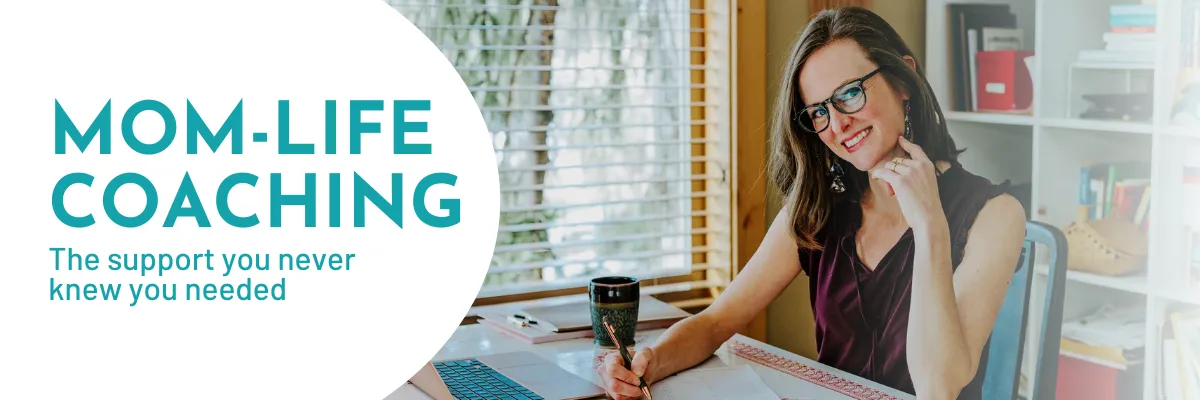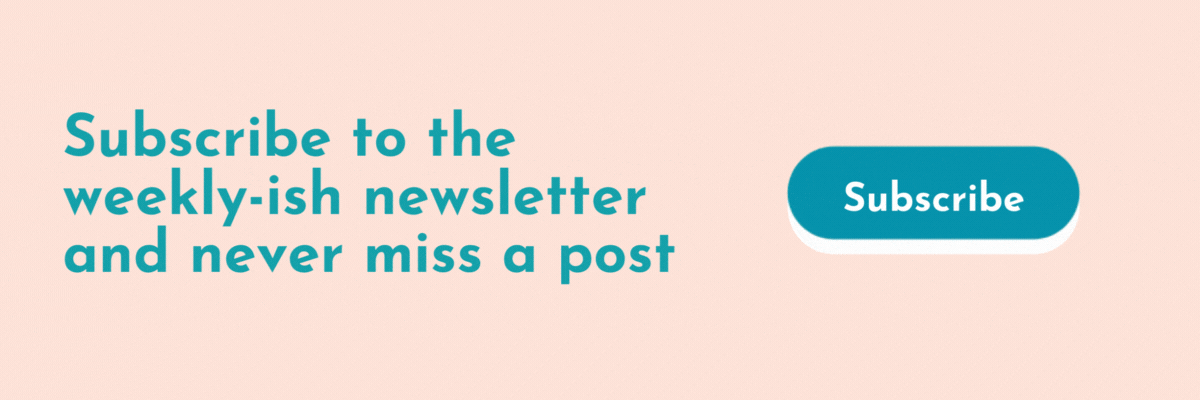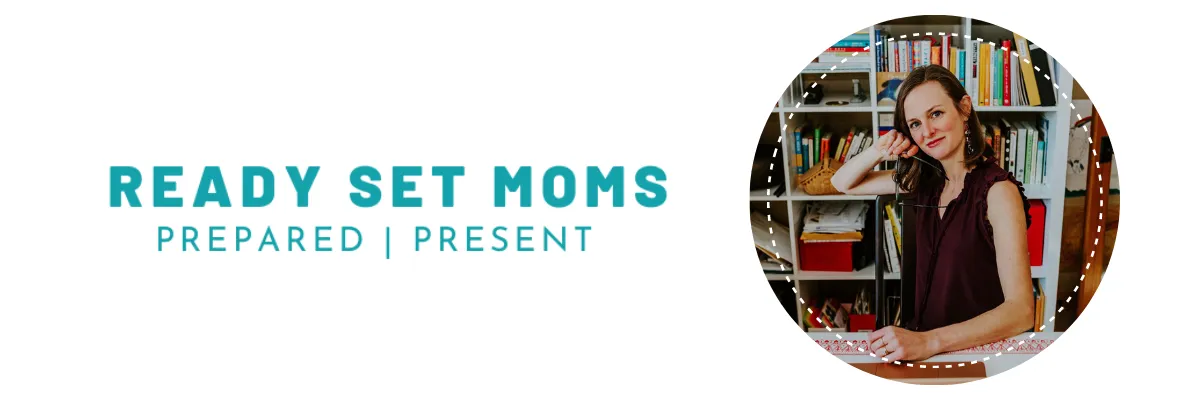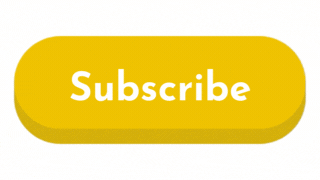Movement, Mindset, and Mom-Life: A Real Chat for Moms (Part 1)
Welcome to Part 1 of the 3-part series “Movement, Mindset, and Mom-Life: A Real Chat for Moms” with Juli McKee and Erika Friday.
Motherhood often feels like a whirlwind, especially when balancing work schedules, potty training, and the long run of family life. As a working mom or a stay-at-home mom, there’s a whole lot to juggle. But with the right mindset shift and a little support, we can reclaim control over our daily routine and mental health.
Whether it's learning how to break free from negative self-talk, embracing mindset work, or finding practical tips for self-care, making small changes today can have a significant impact in the long term. Join Erika Friday and Juli McKee as they explore how to cultivate a motherhood mindset that empowers you to thrive in every role you play.
This post is all about movement, mindset, and mom-life.
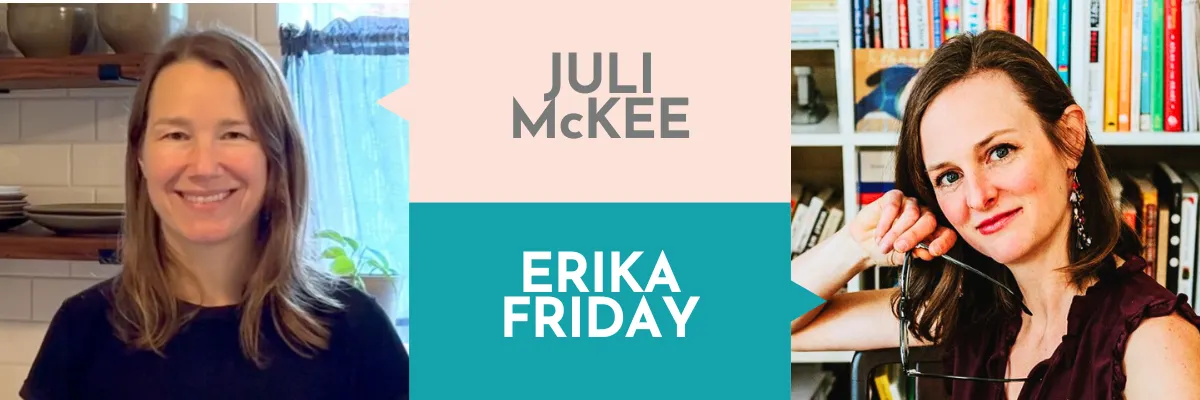
Movement, Mindset, and Mom-Life
Being a mom changes everything — including how we care for our bodies, our minds, and ourselves.
In this conversation between Erika Friday, mom-life coach at Ready Set Moms, and Juli McKee, registered dietitian nutritionist and personal trainer at Jules Food & Fitness, we explore what it really takes to meet your needs in motherhood: from physical recovery and movement to mindset, intuition, structure, and support.
Whether you’re adjusting to early motherhood or evolving through new seasons, this is your invitation to feel seen, understood, and supported.
Here’s our convo, edited for sense and stuff.
Meet Juli — Helping moms get stronger with movement and nutrition

Erika Friday | Ready Set Moms: I’m excited to have this conversation about what I would call the physical aspect of being a new mom — you with your background in personal training and nutrition and me with my background in mindset and systems. I am just so excited for where this conversation is going to go, and I know I'm going to learn a lot!
Let's start by talking about what you do, who you help, things like that.
Juli McKee | Jules Food & Fitness: I describe myself as a dietitian and a personal trainer, and then my niche in nutrition is intuitive eating and sport nutrition.
As a personal trainer I specialize in pregnancy and postpartum fitness, helping moms navigate through that life stage. Those stages can be similar and different, pregnancy and postpartum, but there's a lot of crossover — preparing for birth and then also how do I navigate my new body and return back to movement that I enjoy without pain, or leakage; how do I use my core effectively as well as balance my expectations for self-image, and overall body image. What is it actually like to have a new baby and be in this new body? There's a lot there psychologically as well.
Erika: How do people find you for the first time? Because that is such a rich and holistic way that you serve them.
Juli: Most of my one-on-one clients will find me through Sweat Revival's website. That's the studio I train out of here in Bend. I think a lot of times they come in thinking they're just going to do a workout, and there's so much more there that we unpack.
Otherwise, my website, julesfoodandfitness.com, has all the things that I do on it, including an online version of my postpartum work. So, you can do a self-paced online course via my website.
And I teach an in-person postpartum and pregnancy Mom Fit course at OC Gym here in Bend.
Or just email me! [email protected].
Erika: I have a 101 question for you for people who might not know. What is the difference between working with a dietitian and working with a nutritionist?
Juli: Dieticians have had quite the rigorous schooling. We have a more structured curriculum which includes a lot of clinical work. So, nutritionists a lot of times will have single classes or certificates, but some don't. And there's some wonderful nutritionists out there, but it's very much more across the board in terms of what their background and their education are going to be. There's not a standard for their training. Whereas a dietitian has a registration board to hold them accountable for course work as well as continuing education.
In addition, RDNs have to have a master's degree. We've had to go and do an internship, which again involves clinical work in the hospital setting and in long-term care and in a food system.
RDNs have “nutritionist” in our title because people get confused. So if you're seeing a registered dietician nutritionist, an RDN, it covers all your bases.
Meet Erika — Helping moms build systems with practical tips, navigate negative self-talk through hard moments, and feel fulfilled

Erika: From my side, I call myself a mom-life coach. What is that? I help women be less overwhelmed in motherhood. I'm not going to be the parenting coach that helps you with feeding and sleeping and discipline. I'm going to be the person that helps you implement all those great things that you're reading in the parenting books or in the courses. Instead of you being out there on your own, I'm going to help you implement them in your real life. So, there's a lot of theory that we make practical.
Anything that you don't like in your mom-life, I want to address it with you one way or another. It might be in your expectations. It might be in the systems and how you move around your house, in your schedule. One client that I'm working with, she is really hard on herself for how much she's yelling at her kids. And I get it. That was me starting when I was pregnant with my second. And I have so much compassion for both the woman that's yelling and the woman that's hard on herself for yelling.
And I help you realize what's going on in your life and in your mind and in your nervous system. And we work with all of that to help those moments feel easier — to minimize those stressors, or avoid them, and recover from them.
I support moms in women’s circles and mom groups, workshops, group coaching, one-on-one coaching, and DIY guides.
Juli: I love that application of theory, how you said that, because that is what is missing so much with just the education piece. It’s true in my world, too. The information isn’t enough — in terms of activity or nutrition, someone might be like, "If you just know what to do, do it." Or “I just need to find that one thing that's going to help."
But the application of actually making that work into the day-to-day is so individual and making it stick, and making it work for you.
Erika: you just pointed out something really interesting in this day and age, there's actually too much information. We are overwhelmed by information that's coming both from experts and from the casual lady on Instagram who’s posting for likes.
But what we are able to do in our work is help quiet that noise and focus in on the individual so that they can implement what's actually important to them and what's going to make the difference for them.
A powerful tool: Trusting your intuition in motherhood
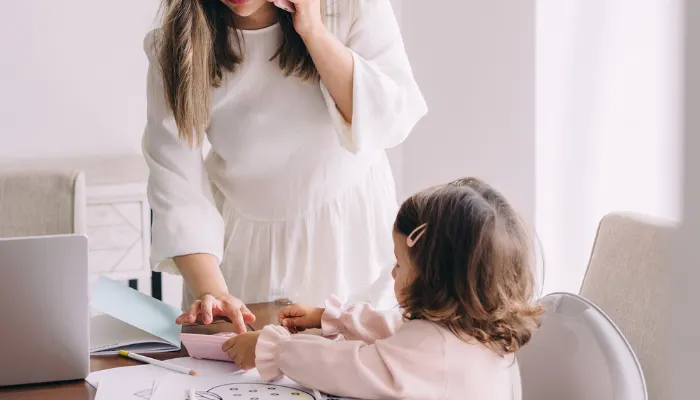
Maybe intuition is a good place for us to start as we gear this conversation toward the physical aspect of motherhood and early motherhood. With your expertise in being a dietician and a personal trainer, you have the nutrition and the movement and the mindset that goes with all of that. Do you find that after becoming a mother, a woman's relationship with her intuition changes? And obviously there's no one answer.
Juli: This is my experience and observation, but I think it's very much heightened in general about your gut feelings, your intuition, about the baby and yourself. But it's also really scary to have that. So I think we question it a lot. Your intuition goes up, and then your trust of that intuition goes down. And so how do we trust that this is what we really need and want and not question it because outside influences say I'm not supposed to be feeling that way.
And that can be with parenting, but also our own selves, and our bodies, and questioning, how should I actually be feeling? It’s the “shoulds” again, I should be doing XYZ because this is what I thought was supposed to happen, what everybody says should happen, but this is how I feel, so this must be wrong.
So yeah, I think that it's really heightened, and it's really hard to listen to it...
Erika: I think that's the best interpretation of this conundrum I've ever heard. That our intuition is heightened, but our trust in it decreases.
I've heard the phrase intuitive eating. I'm not sure I've heard it applied to movement and exercise. How does intuition play into the work that you do with your clients?
Juli: I think you can take a lot of the same principles that are used with eating and apply it to any aspect of your life, honestly, because it's this regular check-in with yourself.
In fitness, we talk about red flags (stop immediately) and yellow flags (proceed with caution), and it’s a useful metaphor for tuning into your body.
If you've done any kind of structured exercise, there are some general red flags that tell you something isn’t right for you. For instance pulling a muscle, getting dizzy or lightheaded, or shortness of breath — those can be red flags.
So you need to learn to see the red flags or yellow flags or in between things that kind of tip you off, and you think “this doesn't feel quite right in my body..” or in my mind or for what I should be doing right now, and paying attention, checking in, giving yourself that pause to ask, “How am I actually feeling right now? Do I need to go a different route?”
And it's not that there's a right or wrong either to that question unless it's more of a life or death very-red-flag situation. But there's a lot of nuances in between there.
So whether it's what you're choosing to eat for lunch, or how you're choosing to move your body, or when you're going to go to bed at night, or how you're going to spend that 10 minutes by yourself before you have to go get your kid from school, whatever it is.
More often it's a practice. So it's not just like — poof — I'll just start paying attention. It's like no, I have to intentionally give myself that space and time to think and then really sit with some of these gray areas. I’ve got to sit with Why am I feeling this way? If I make this choice how does that feel? And evaluate that in a space that's neutral rather than a shame and blame space.
Erika: Something I agree with in what you're saying is that intuition is a skill that can be practiced and it doesn't necessarily happen automatically.
Juli: And maybe it does happen automatically, but you don't notice it. So that's where that trust in it will come into play. Noticing those times where you feel that sense of this doesn't feel quite good for me. What needs to change? And then you can explore it and practice it.
As we navigate the chaos of motherhood, it’s important to remember that the little things — a deep breath, a positive affirmation, trusting our intuition, or a moment to pause — can lead to big shifts in our mental attitude. Embracing mindset changes over time will help you develop more compassion, not just for your family, but for yourself.
Click here for Movement, Mindset, and Mom-Life: A Real Chat For Moms (Part 2)
This post was all about mindset and mom-life. If this meant something to you, you might also like:
Movement, Mindset, and Mom-Life: A Real Chat For Moms (Part 2)
How to let go of perfectionism in motherhood
If this post helps make your mom-life easier,
subscribe to the weekly-ish newsletter and never miss a post.

